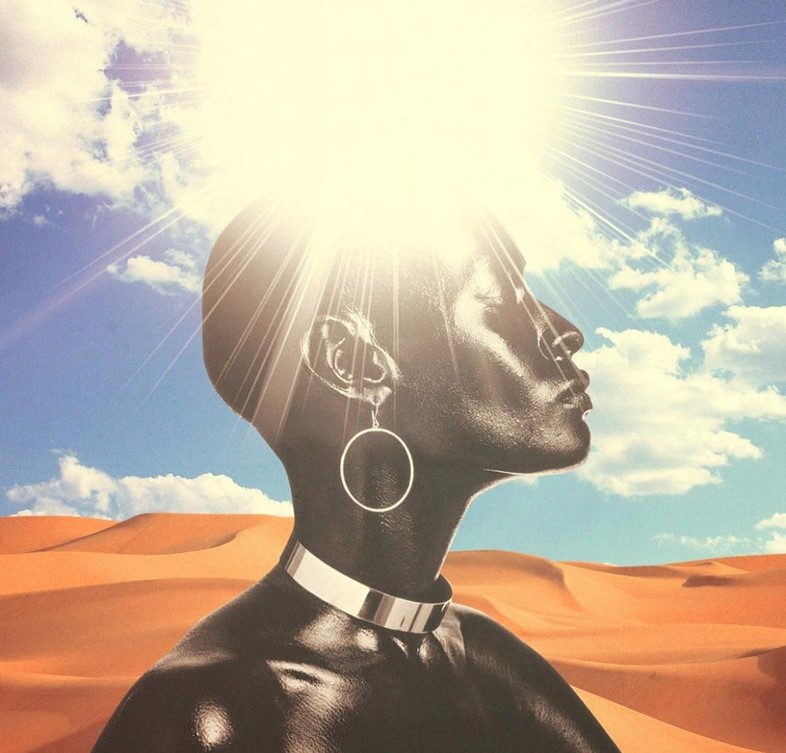Writer and curator Ekow Eshun pulls from music, art, architecture and film to celebrate Afrofuturism through @the.afrofuturist
“I watched Black Panther earlier this year and one of the ways it seemed interesting was that it introduced Afrofuturism as a concept in a mainstream way,” says Ekow Eshun, the writer, critic and curator who runs Instagram account @the.afrofuturist.
A digital gallery of art, photography, film and music, @the.afrofuturist spotlights work that “reimagine[s] the black experience via science fiction, history and fantasy”. Thanks to the increasing visibility of cultural criticism on black art, the works of musicians like Janelle Monáe, and, of course, the astronomical success of Black Panther, Afrofuturism is currently firmly in the public eye. Eshun’s Instagram account is a timely invitation to “explore race, space and all the points in between”.
While the account’s handle might at first imply a singular Afrofuturist, Eshun is interested in finding like-minded people. “An Afrofuturist sensibility is about seeing the absurd, the impossible and the incredible. I don’t think I’m alone in that way of looking and thinking about the world,” he says. “That’s why I wanted to share. If you do that by social media, you’re in contact with other people.”
The term ‘Afrofuturism’ was coined in 1993 by cultural critic Mark Dery, but the ideas it describes came decades before. @the.afrofuturist’s exploration of the theory speaks to the shifting focus from Afrofuturism as an academic idea to a recognisable and accessible visual aesthetic. “What I love about Instagram is that it allows me to think in public in a visual way,” explains Eshun. “Afrofuturism is an idea, but what I really like is the idea of expressing that through images.” Eshun’s carefully curated picks vary in style and expression: “I look for stuff that feels artistically ambitious in its visualisation… that can be anything from a Hype Williams video for Busta Rhymes through to an extraordinary Brutalist building somewhere in Ghana or different parts of Africa in the independence era.”
Architecture perhaps doesn’t spring to mind immediately when you think of Afrofuturism, but for Eshun the concrete structures of newly independent African nations in the 1960s and 70s were “a statement of possibility, and impossibility. Audacious, bold, and fantastical, they were also saying ‘Look, we’re not going to be bound by the rules of the past; we’re going to create and imagine in relation to our long history but also in the faith that we can build a future on our own terms.’”
By posting images of places such as central market in Yaoundé, Cameroon, alongside clips from Sun Ra’s Space is the Place (1974), Eshun presents an expansive definition of Afrofuturism that encompasses African-American work as well as expressions found in Africa and the international diaspora. Eshun also posts recent works by emerging artists, such as the 3D computer generated portraits of Janice Prempeh (aka @opalslutuniverse) alongside older and more well-known work inspired by Afrofuturism.
@the.afrofuturist is not about collating some kind of definitive Afrofuturist canon. Instead, inspired by the amount of “extraordinarily ambitious” black art – from Monáe’s recent album to video installations by Arthur Jafa and Khalil Joseph – Eshun seeks to gather those artworks together and explore the common threads between them. And there is plenty to gather, Eshun says. “I come across new stuff every day. It’s something to do with the quality of the creative work around right now. But there’s also a lot of imagery and work that for decades hasn’t been recognised as work of real imagination. So it doesn’t feel like I’ve got close to an end, or that I will for a long time.” The indefinite nature of the project mirrors what Eshun feels to be the main tenet of Afrofuturism: the future is open.
